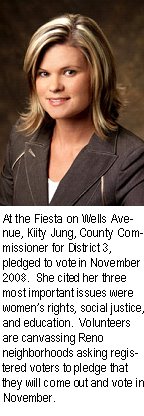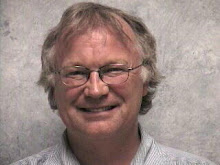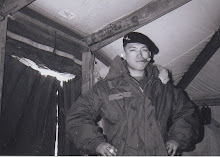Friday, March 28, 2008
MANAGING GROWTH AT THE BIGGEST LITTLE CITY
In regard to the 'Save our Water' question, the current master plan for our area calls for 1.2 million residents, while we only have enough water for about 600 thousand residents. In Planning Principle #2 of the Truckee Meadows Regional Plan, it is recognized that our region is "resource constrained" and that water is one of the resources that is constrained. Again, this is not an attempt to stop or 'cap' growth, but again to manage it in a responsible manner. The Truckee Meadows Regional Plan water demand estimates exceed identified water resources by 120%. Washoe County Commissioner Bob Larkins at the Board of County Commissioner meeting held on 3/11/08 conceded that the Spanish Springs area is already "over-allocated" in terms of water needs and usage. The voters of Washoe County have a right to determine the future of the region. The irresponsible and unmanaged growth in Las Vegas has already put our state's and regions water supply at risk.
Lessons from LAS VEGAS -- Seting aside what happened to the Owens Valley, in this city of histrionic and runaway growth (in 2005), in the middle of a five-year drought, the worst in 100 years of record-keeping and perhaps -- tree rings suggest this -- the worst in 500 years, Las Vegas's water came mostly from Lake Mead -- which in 2005, was down to 59 percent of capacity -- and, upstream from Mead, Lake Powell, which was at 34 percent of capacity, its lowest since it started filling three decades before. The Colorad River doesn't even reach the Gulf of Mexico anymore. The lower course of the river, which forms the border between Baja California and Sonora, is essentially a trickle or a dry stream today due to use of the river as Imperial Valley's irrigation source. Prior to the mid 20th century, the Colorado River Delta provided a rich estuarine marshland that is now essentially desiccated, but nonetheless is an important ecological resource.
The Strip -- the portion of Las Vegas Boulevard that has 15 of the world's 20 largest hotels -- features vast fountains, a sea battle between pirate ships and an 8.5-acre lake in front of the Bellagio Hotel and Casino. According to ABC News (April 2007) Las Vegas has become the fastest-growing city in the nation. Its population is currently 1.8 million, and is projected to hit 3 million by 2020. Las Vegas is a city with a ferocious thirst that it's having a hard time slaking. The major water supply for Las Vegas comes from the Colorado River, which has undergone a drought as a result of climate change, says Pat Mulroy, of the Southern Nevada Water Authority.
"Climate change is here," Mulroy, the city's water czar for almost 20 years, says. "We've been living it for the last eight years. The drought on the Colorado River was a rude wake-up call. Frankly, when 90 percent of your water comes from one river that is predicted to have massive water shortages, you'd be irresponsible not to develop water supplies that are independent of that river system in order to diversify." The plan for diversification is controversial. Mulroy divised the controversial plan to build a $2 billion pipeline that would pump water out of White Pine County and send it down to feed the growing water needs of southern Nevada. Specifically, the Snake Valley, in White Pine County, Nev., straddling the Utah border. This area is home to cattle ranches, alfalfa farms and endangered species, it's people who are few and far between along this desert landscape. That's because the Snake Valley is dry -- one of the driest parts of the driest state in the union, getting only about 8 inches of rainfall every year.
The Southern Nevada Water Authority and its water "czar," Patricia Mulroy, seeks to tap 65 billion gallons of rural water a year with a 300-mile-long pipeline expected to cost more than $2 billion. That's enough water for 50,000 families a year. Las Vegas's unmanaged growth has now impacted other Nevadans, like Dean Baker and Cecil Garland, who both operate ranches in Utah and Nevada. But even the Water Czar could not avoid conceding "There isn't enough water to go around," Mulroy told NPR in a 1991 story about the early stages of the project. "And we're the most arid spot in the United States." Las Vegas, a city known for its excess, has exceeded not onlt its own surface and ground water sources, as well as the Colorado River, but now expect other Nevada communities and families to sacrifice their life styles and communities for the sake of unmanaged growth. "What Las Vegas has got to learn is that there are limits to its growth," Garland says. He also applies his own value judgment to the competing uses for water. "Gluttony, glitter girls and gambling are what [Las Vegas] is all about," the 81-year-old rancher asserts. "What it's all about here [in Snake Valley] is children, cattle, country and church."
It is quite simply reckless and irresponsible to implement any growth plan that ignores or fails to consider the availability of water in Washoe County, and to ask other communities in our state to pay far or shoulder the burden of our lack of responsible planning.
The research for this article was provided by the Progressive Leadership Alliance, by Howard Berkes of NPR, by Terry Moran and Katie Hinman, ABC News, and George F. Will of the Washington Post.
Saturday, March 1, 2008
Blanket Peddlers
EDITOR’S NOTE: Industry Vista is a weekly column that provides officials from different industry sectors an opportunity to share their views on issues affecting their Northern Nevada companies. Today’s column is by Joaquin Rafael Roces with the Nevada Indian Commission.
I am a commissioner with the Nevada Indian Commission under Gov. Kenny Guinn.
I also have been a criminal prosecutor and court advocate for several Northern Nevada tribes during the past five years. These include the colony in Reno, the Paiute tribes in Pyramid Lake and Walker River, and the Fallon Paiute-Shoshone Tribe. During the five years I have worked for the tribes I have handled more than 500 cases, from simple traffic citations to child sexual assaults and vehicular homicides.
I have worked closely with the U.S. Attorney’s office in joint prosecutions of serious crimes under the Major Crimes Act and have been a working member of the Washoe County Domestic Violence Fatality Review Team, the Washoe County Domestic Violence Task Force and the Nevada Attorney General’s Full Faith and Credit Team.
US Constitution recognizes three types of sovereignty: federal, tribal and state. Tribal sovereignty can be found in the census clause first, then in the commerce clause.
In the census clause it reads that the census is not to include “Indians not taxed” in its census count, as the U.S. government acknowledged that it had no authority to tax Indians as they were recognized as separate foreign states.
Within the commerce clause, the U.S. Constitution mentions trade with three separate sovereignties: “States,” “Foreign Nations,” and “Indian Tribes.” In fact, in its beginning the U.S. government dealt with the tribes as foreign sovereign powers and negotiated treaties with various tribes from commerce to mutual defense against hostile European colonial aggression.
After 1812, that U.S. policy with the tribes changed from “international policy” to a “domestic policy.” When Public Law 280 was first passed, it transferred federal jurisdiction over the tribes to the states.
Six states were made mandatory PL 280 states and the balance was voluntary. Nevada is a voluntary PL 280 state. Williams v. Lee in 1959 gave jurisdiction to tribal courts regarding civil on-reservation disputes between Indian and non-Indian.
This was further upheld by the Indian Civil Rights Act of 1968, at which time PL 280 was amended to include tribal consensus prior to transfer of jurisdiction from the feds to the state.
Nevada state law also upholds tribal sovereignty as well, including NRS 233A.120 and NRS 233A.130.
Further, NRS 370.0751 which governs the imposition of an excise tax on cigarettes by governing body of Indian reservation or colony, already gives the tribe the authority to impose and collect such a tax.
Although there is a distinct difference between an excise tax and a sales tax, current taxes collected under 370.0751 and future sales taxes collected from the Mercedes dealership would go to the governing body, whether it be the Reno Sparks Indian Colony or the state of California.
Therein lies the true reason for all this furor and controversy: it is not taxation or even states rights, but economic racism and bigotry.
The truth is, a person buying a Mercedes from the dealership in the colony is no different than that same person buying it directly from the main dealership in Sacramento.
So, why aren’t these Caucasian “blanket peddlers” on Kietzke Lane protesting car dealerships in South Shore, Stateline and Truckee, and California’s sovereign right to taxation?
The Gazette Journal’s articles on Oct. 21 cites unnamed “several lawmakers” who have asked for an investigation, and directly quotes senior legislator Sen. Bill Raggio, as the lead advocate for this special investigation, supported by Sen. Randolph Townsend of Reno.
Townsend classified the controversy as “very serious,” and alluded to possibly changing the law in 2005.
In essence, what Townsend is saying is that the Mercedes dealership moving into the colony is equivalent to an economic Vietnam for the downtown Reno, and that the catastrophic domino effect that would follow is that the high-end dealership would move 15 minutes away in distant south Reno, leading to a monumental loss of $1 million a month in sales tax.
Sounds like desperate and dire circumstances — I can hear Sen. Raggio on the Senate floor rallying the troops, “best gather round, boys, we better cut those injuns off at the pass.”
But wait a minute, Kemosabe, didn’t Raggio and the boys just pass what the Gazette Journal called an “historic” and “a record state budget” based on Nevada’s largest tax revenue sources — gaming and retail sales — that were higher than projected sums (relied upon by lawmakers in passing a record state budget last summer).
In fact, the combined tax revenues are nearly $16 million ahead of projections. These sales and gambling fee levies amount to at least two-thirds of all state revenues, even accounting for the broadened tax base approved by lawmakers this year after months of debate.
The Gazette Journal compared the car lot controversy to the threat posed by Indian gaming in California, yet no one seemed too upset about the Sundowner closing its doors this December and putting 300 Renoites on the street just in time for Christmas and adding another empty casino in the middle of downtown Reno.
I didn’t hear any saber rattling there, and how many other business, like Sears, Target, Mervyn’s and Wal-Mart, to name a few, who moved to locations in south Reno following the growth pattern, and not because they were being chased by an imaginary Indian war party.
Saying that all this furor regarding this one car dealership is about taxes is like saying the Civil War was fought for black suffrage.
These lawmakers, these “blanket peddlers,” and their practice of economic racism, are no different than their predecessors who sold blankets infected with small pox to the tribes and distributed rotted beef and commodities to the reservations while they grew fat from the profits.
Chairman Melendez and the colony have just as much right as Reno and Mayor have promoting the sale of the Reno Hilton property, or the State of Nevada to seek and pursue economic development to improve the standard and quality of life of the population that they are beholden to. Standards such as health, elder and child care, police and public safety on the colony already lag far behind the very same standards found on the other side of Second and Mill Streets.
The monies generated from these revenues would go to strengthen these institutions, such a projected $12 million Health Center. After all, doesn’t Nevada make the same promises to solicit and entice businesses to leave California’s economic minefield for Nevada’s “greener pastures.” The Web site “Nevada.org,” home site of the Resident Agents of Nevada Inc., touts the slogan “Incorporate in tax free Nevada!” You can find handy instructions, information and links regarding asset protection and tax consideration in what the site calls “the acknowledged corporate capital of the United States.”
On Oct. 8, a mere two weeks before the Gazette Journal’s article, Nevada’s very own Commission on Economic Development approved tax incentives for Steam Turbine Balding & Parts of Douglas County and Spacecraft Components Corporation of Clark County. The official Web site for the commission even has a link titled “Tax Climate” under the heading of “Incentives,” that lists the following: “The outstanding tax climate in Nevada is one of the best reasons to do business in the state. This tax structure also clearly distinguishes Nevada as offering a business environment very few states can match.
In Nevada there is:
o No corporate income tax.
o No personal income tax.
o No franchise tax on income.
o No inheritance or gift tax.
o No admissions tax.
o No unitary tax.
o No estate tax*.
o Competitive sales and property tax rates.
o Minimal employer payroll tax — 0.7 percent of gross wages with deductions for employer paid health insurance.
In light of all this, what exactly is the Indian Colony doing any different than the state, or any other municipality or county doing? And how again is it offensive or illegal?
In both articles, none of the legislators, Reno nor Nevada officials could point to a valid violation of Nevada Revised Statutes or Administrative Code. In fact, they say and imply that the colony abided by the written agreement. The tribe is not charging any less than what the state charges for sales tax.
So, in reality there isn’t even any competitive incentive offered to cause a buyer to purchase a vehicle from the tribal dealership instead any of the blanket peddlers on Kietzke. This is a stark contrast to incentives offered on the state Web site [listed above].
In short, the injun played by the white man’s rules and did good. Senator Raggio states in the article that the law allowing agreements might have to be reconsidered. Translation: the white man wants to change the rules.
After the writing of this article — which does not reflect the opinion of the Nevada Indian Commission, Governor’s Office, Walker River Paiute Tribe, Reno-Sparks Indian Colony, their officers, employees or members — more than 73 percent of the 254 respondents to the RGJ Biz Poll were in dissent with Sens. Raggio and Townsend.
I hope they are but a minority within the Legislature, and that the majority of the legislators — as well as the governor and attorney general — will not be swayed by the deceitful tactics of a few blanket peddlers.
The Reno Gazette-Journal Business section welcomes your views on our Monday Industry Vista column. Please e-mail your letters to business@rgj.com, fax them to (775) 788-6458, snail mail them to Business section, Reno Gazette-Journal, Box 22000, Reno, NV 89520-2000 or drop them off between 8 a.m. and 5 p.m. weekdays at our office at 955 Kuenzli St. in Reno.
Copyright © 2008 The Reno Gazette-Journal

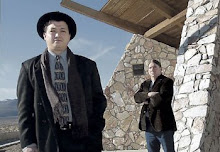



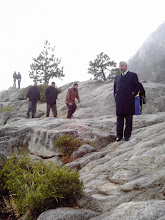+of+2-27-2007-040.jpg)










